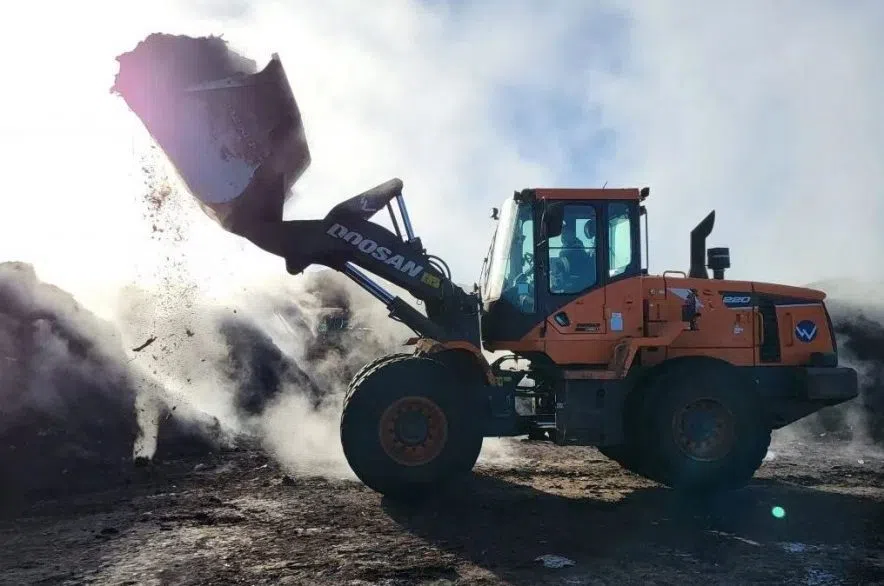Steel and aluminum tariffs will have an impact on Canada, according to University of Saskatchewan professor and Edwards enhancement chair in business Devan Mescall.
He was on the Evan Bray Show on Tuesday saying the size of the impact will depend on how Canada responds.
Mescall explained that Canadian consumers will get caught in the crossfire if Canada rolls out retaliatory tariffs.
He says the good news for Saskatchewan is that uranium is not included in this round.
Listen to Devan Mescall on The Evan Bray Show:
The following transcript has been edited for length and clarity.
EVAN BRAY: Yesterday (Monday), we were slapped with what we’ll call commodity-specific tariffs — steel and aluminum — can you help us understand the magnitude of this?
DEVAN MESCALL: I think that yesterday, President Trump said he thought maybe he’d be announcing weekly different tariffs, so it sounds like this might be a rolling issue of sort of discussions. These specific tariffs are impactful. Steel and aluminum are inputs into a lot of the products that we, as consumers and everyday people, use all the time. One thing I think that helps us understand is this particular play is not completely new. We saw this in 2018 with tariffs on steel and aluminum. So, looking at some of the impacts from 2018 provides some insights into how this could impact Canada. Just to remind everyone, a tariff is really a sales tax. It’s paid by the importer, so when the person purchases steel or aluminum from Canada, they will pay an additional 25 per cent tax, and that tax will go to the government.
What is important is who ultimately bears the cost of that. As we look across these rolling tariffs, it’s going to vary from product to product, whether it’s born by potentially the Canadian manufacturer, so they’re going to have to lower their price and take a lower price or it’s passed on to the consumer.
What generally leads the competitiveness in the market in economics we look at two sides — demand and supply. On the demand side, can demand be pulled back and stopped if the price goes up? The term we usually use for that is elasticity. When prices go up, there can be a change in the demand and companies slow down production.
Read More:
- Canadian steel, aluminum hit by 25-per-cent tariffs by Donald Trump
- A timeline of Canada-U. S. tariffs on steel and aluminum
- From bagels to ‘Canadianos,’ Trump tariffs threat inspires acts of patriotism
The other area is what happens on the supply side. Is there a substitution? In this case, what the U.S. is hoping is there will be a substitution with domestic production. Right now, U.S. yield production is around 70 per cent of capacity. They’re hoping the change will ramp that up to a much higher number.
Now, when we looked at 2018, what happened is they were pretty similar. It was around 72.4 per cent capacity when it started the year of tariffs only raised that by about six per cent, so it went up to 78 per cent. That’s because there are usually economic reasons why that’s not running at full capacity.
Usually, it means that the U.S. steel producers that can produce at a lower cost there (in the U.S.), are running at a higher capacity, and the ones that have higher costs are not; that then leaves the space for the imports to come in. A good example of that is aluminum. The U.S. imports a vast majority of its aluminum, mostly it comes from us. One of the reasons why we’re able to produce aluminum at a very competitive price is because electricity has a major impact on the production of aluminum and with their hydro in Quebec, they can produce it at a reasonable cost, so that ends up being good for purchase of aluminum in the U.S., which ends up going into our cars, our beverages and keeps the price down for all of us.
Do we think we will see the same retaliatory strategy and outcome as the last time this happened? Or is it different this time?
MESCALL: Just this morning, Prime Minister Justin Trudeau said that they would be looking at it and would be considering retaliation. Last time, there were several months of negotiation before they moved to retaliation. That’s an important question because that’s when we’ll really begin to see, as Canadian consumers, the impact. If there are tariffs put on U.S. products, it’s then us as the consumers, the importers that bring them into Canada. That’s sort of when our prices will go up. The only way this really impacts Canadian prices is on those products that have been produced in the U.S., and then we bring them into Canada.
Those are some pretty important products, like appliances, cars, our tractors. Last time we saw that the price increases on those were about four to six per cent and that was before any retaliatory tariffs by the Canadian government. So we will have to see but hopefully, they will maybe wait and see if they can negotiate it down before because the Canadian consumer gets caught in the crossfire.
If we look at fabrication in Canada, we clearly can’t absorb any losses to the states into Canada because we don’t have our industry built in a way that we could take that on, do that value add, and churn out those products in our country.
MESCALL: It’s challenging to turn that on immediately. I think all this allows us to pause. We’ve had 50-plus years of always operating our economic policy under speculation that the U.S. would always be right there with us. I think this gives us a pause to realize that there has to be room for us to produce more things ourselves. One of the things I was thinking about last night with this is the last time this happened the Canadian government put aside a $2 billion fund to sort of help the steel industry. I think that $2 billion would be really well invested in just keeping our friends and colleagues working in the steel industry, out in Ontario, in Quebec, and making that Energy East pipeline. That would use a lot of the steel and would be a good investment of that $2 billion from last time.
If these were potash tariffs or canola tariffs, they would hit directly into the gut of our province. How big are steel and aluminum tariffs for Saskatchewan?
MESCALL: We do have Evraz in Regina, and there were real concerns about the impact of that last time, but they were able to weather that. So, it does have an impact back at home. But the one other small silver lining here is that last time when they did these same tariffs, they scooped up uranium in the steel and aluminum tariffs in 2018. The Cameco leadership had to really lobby hard in Washington to explain to them why uranium is a strategic good, and at least this time, uranium has been left out of this round.











